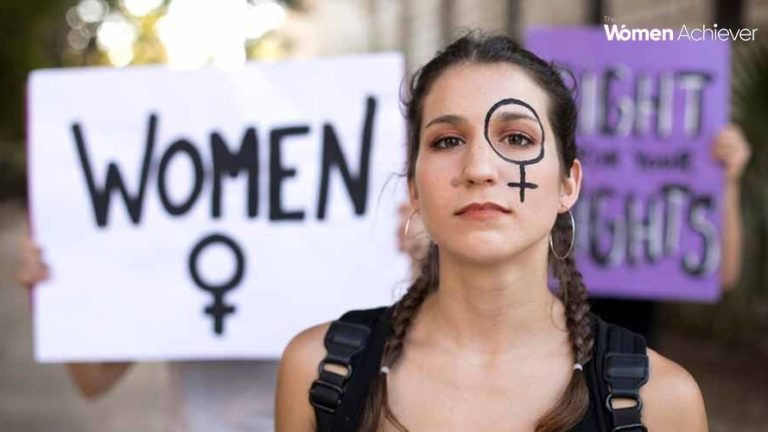Uncover the key obstacles and solutions for a more inclusive political future
Despite significant progress in gender equality, politics remains a challenging arena for women worldwide. While the number of female political leaders has increased, their overall representation in government and decision-making roles remains disproportionately low. Numerous barriers, both systemic and cultural, continue to hinder women from pursuing and sustaining political careers.
Cultural and Social Norms
Deeply ingrained gender norms and stereotypes shape societal expectations about leadership. Many cultures still associate leadership with traditionally masculine traits such as assertiveness, decisiveness, and competitiveness, making it difficult for women to be perceived as capable political figures. In some regions, the expectation that women prioritize family and caregiving responsibilities discourages them from entering politics, as the demanding nature of political life often conflicts with these traditional roles. Societal attitudes toward women in power can create an environment where female politicians face higher scrutiny and criticism compared to their male counterparts.
Gender Bias and Discrimination
Women in politics frequently encounter gender bias, both subtle and overt. Media coverage tends to focus more on their appearance, personal lives, and emotions rather than their policies and capabilities. The perception that men are inherently better suited for leadership can lead to a lack of support from political parties, voters, and even colleagues. In election campaigns, women often face smear tactics, including sexist attacks and misinformation aimed at discrediting their credibility. Such biases discourage many potential female candidates from stepping into the political arena, fearing the hostility and personal attacks they may endure.
Financial Barriers
Entering politics requires substantial financial resources, from funding election campaigns to sustaining a long-term career in public service. Women, on average, have lower access to financial networks and economic resources compared to men. The gender pay gap and unequal access to wealth accumulation mean that many aspiring female politicians struggle to fund their campaigns. Political donors and backers also tend to favor male candidates, perceiving them as safer investments. Without adequate financial backing, women find it difficult to compete in elections, especially against well-funded male opponents.
Lack of Political Support and Networks
Political structures have historically been male-dominated, with networks and mentorship opportunities largely designed for men. Access to influential political circles is crucial for career advancement, yet women often find themselves excluded from these spaces. Political parties may fail to actively recruit and support female candidates, offering them fewer opportunities to rise through the ranks. Even when women do enter politics, they may struggle to gain the necessary backing to secure key positions within their parties or government institutions.
Threats, Harassment, and Violence
One of the most alarming deterrents for women in politics is the prevalence of harassment and violence. Female politicians frequently receive online abuse, threats, and even physical attacks simply for participating in public life. Social media platforms have become breeding grounds for misogynistic attacks, where women in politics face relentless trolling, hate speech, and threats to their safety. In extreme cases, female politicians and activists have been targeted with physical violence, reinforcing the perception that politics is an unsafe space for women. The fear of such aggression discourages many from pursuing political careers or forces them to leave politics prematurely.
Work-Life Balance Challenges
Political careers demand long hours, frequent travel, and unpredictable schedules, making it difficult for individuals with family responsibilities to manage both personal and professional commitments. Women are still expected to bear the majority of caregiving duties, including child-rearing and elder care. The lack of family-friendly policies within political institutions, such as parental leave and flexible working arrangements, further exacerbates this challenge. Without adequate support systems, many talented women opt out of politics due to the difficulty of balancing their political ambitions with family obligations.
Legal and Structural Barriers
In some countries, legal and institutional barriers hinder women’s political participation. Electoral systems that rely on majoritarian voting tend to disadvantage female candidates, as they require extensive political backing and resources that women often lack. Some political systems have deeply entrenched patriarchal structures that actively resist gender inclusivity. In nations where gender quotas are not enforced, women remain significantly underrepresented in decision-making roles. Even in countries with gender quotas, enforcement mechanisms are often weak, leading to token representation rather than genuine empowerment.
Lack of Representation and Role Models
The absence of strong female political figures in leadership roles discourages aspiring women from entering politics. Representation matters, and when women do not see themselves reflected in positions of power, they are less likely to pursue political careers. A political landscape dominated by men perpetuates the belief that politics is not a space for women. The lack of female mentors and role models means that aspiring women politicians often struggle to find guidance and support in navigating the political system.
Media Representation and Public Perception
The way women in politics are portrayed in the media plays a crucial role in shaping public perceptions. Female politicians are often subjected to gendered scrutiny, with discussions about their fashion choices, tone of voice, and demeanor overshadowing their policies and achievements. The media tends to portray ambitious women as aggressive or overly emotional, reinforcing stereotypes that deter women from seeking leadership roles. Negative coverage and unfair treatment in the press discourage many women from entering politics, fearing the intense scrutiny and judgment they will face.
Solutions and the Path Forward
Addressing these barriers requires a multi-faceted approach that includes systemic reforms, cultural shifts, and institutional support. Governments and political parties must implement policies that promote gender inclusivity, such as gender quotas, financial support for female candidates, and mentorship programs. Societal attitudes toward women in leadership need to evolve, challenging stereotypes that limit women’s political participation. Media organizations should adopt ethical guidelines to ensure fair and unbiased reporting on female politicians.
Legal protections against harassment and violence must be strengthened to create a safer environment for women in politics. Online platforms should take stronger action against gender-based abuse, ensuring that female politicians can participate in political discourse without fear. Work-life balance policies, such as flexible schedules and parental leave for politicians, should be introduced to support women juggling political careers and family responsibilities.
Encouraging more women to enter politics is not just about gender equality; it is about creating more representative, diverse, and effective governance. When women participate in decision-making processes, policies become more inclusive and address a broader range of societal needs. Breaking down the barriers that prevent women from entering politics is essential for building a more equitable and just political system.






Add comment